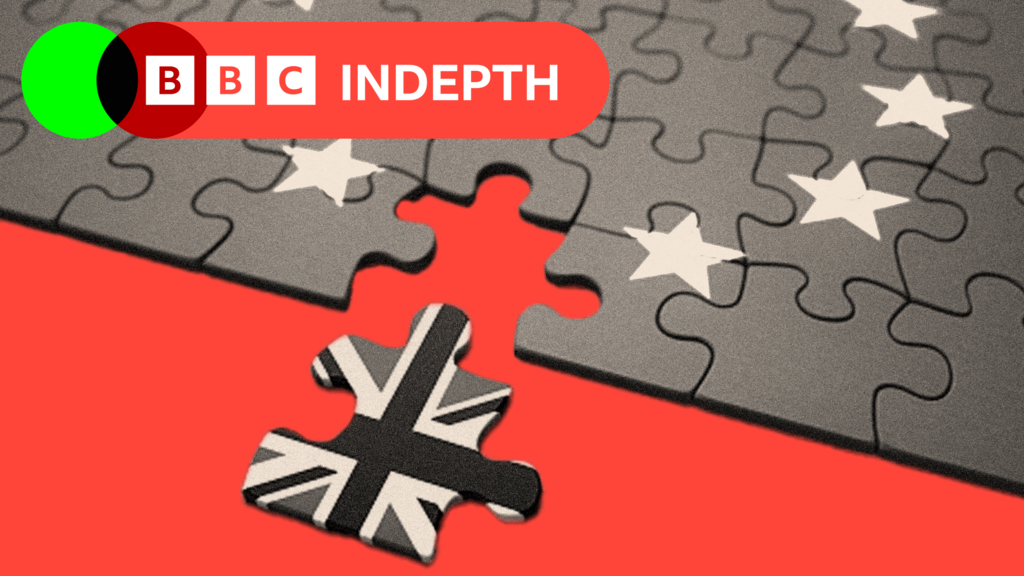Listen to Damian read this article
Earlier this month, in London’s Lancaster House, Metropolitan Police officers enjoyed tea and biscuits while, upstairs, European politicians convened to discuss future cooperation.
The venue was symbolically rich, reflecting the intertwined history of the UK and Europe. Lancaster House’s architecture echoes Versailles, and has hosted historical figures including Queen Victoria and Tony Blair.
The meeting, hosted by Foreign Secretary David Lammy, addressed crucial issues: the Ukraine war, European security, and – significantly – a UK-EU summit scheduled for May 19th, the first since Brexit.
The British government considers this a landmark moment. Pre-Brexit, UK prime ministers attended numerous Brussels summits. Post-Brexit, large-scale summits ceased.
The Labour government, elected on a platform of improved EU relations, aims to re-establish regular interactions. Monday’s summit marks the beginning, with Prime Minister Sir Keir Starmer hosting leading EU figures to launch a new partnership.
EU Ambassador Pedro Serrano calls it a culmination of high-level contacts since the 2024 UK elections. However, the summit’s impact remains uncertain.
Is it a “surrender summit,” as Conservatives claim? A “great British sellout,” as Reform UK fears? A missed opportunity, as Liberal Democrats suggest? Or, as Sir Keir Starmer argues, a demonstration of pragmatism overcoming political posturing?
During the 2020 Brexit negotiations, a Security and Defence Partnership was discussed but ultimately stalled. Now, a new security pact is central to the planned agreement.
EU foreign policy chief Kaja Kallas, present at early Lancaster House talks, acknowledges past difficulties but emphasizes the need for forward progress given global events.
However, some oppose the partnership. Conservative MP Alex Burghart believes NATO is sufficient, while Reform UK’s Richard Tice sees no value in a “bungling…military structure.”
The government counters that the partnership complements, not undermines, NATO, encompassing broader areas like economic, infrastructure, and energy security, as well as migration and crime.
Industry experts foresee economic benefits. Kevin Craven of the ADS Group highlights the EU’s SAFE program, offering potential access to substantial funding for British weapons manufacturers.
Craven estimates a potential 20% boost to EU defense output. Liberal Democrat spokesperson Calum Miller also sees this as a significant opportunity for the British defense industry and a chance for strategic continental engagement.
The UK has already collaborated with the EU on defense post-Ukraine invasion, yet the significance of a formal partnership is debated. Jill Rutter, a former civil servant, suggests the partnership represents incremental change, not a dramatic shift.
Others argue it will establish new avenues for cooperation. A particularly contentious point is a potential “veterinary” deal to ease border checks on food and drink.
Cabinet Office minister Nick Thomas-Symonds cites a government mandate for this, driven by industry calls for reform. Julianne Ponan of Creative Nature illustrates the current challenges of exporting to the EU.
A veterinary deal would significantly impact Northern Ireland, simplifying trade while potentially requiring alignment with EU rules and oversight.
Critics, like Conservative Andrew Griffith, label this a “surrender summit,” fearing a loss of regulatory autonomy. Reform UK uses stronger language, predicting a “Great British sell out”.
Tice advocates for rapid divergence from the EU’s allegedly failing economic model. Labour’s Thomas-Symonds dismisses these as recycled arguments.
Conversely, some argue that Sir Keir Starmer is too cautious. Liberal Democrats call for exploring a customs union, despite potential limitations on independent trade deals.
David Henig, a former trade negotiator, views the summit as incremental, focusing on modest trade enhancements. Jill Rutter suggests a veterinary deal, while not economically transformative, could serve as a model for future cooperation.
The issue of fishing rights is complex. The current agreement expires next year, and the EU seeks an extension. David Davis, former Brexit minister, critiques the initial agreement as overly concessional.
He advocates for a firmer stance, leveraging fishing rights for concessions. However, the EU also holds leverage, given the importance of the continental market for British fish.
A youth mobility deal, allowing under-30s from the UK and EU to live and work in each other’s countries, has generated interest. While the government initially dismissed such a deal, it’s now under consideration, likely with strict limitations to control migration.
Calum Miller questions the aversion to such a scheme with the closest neighbours, given similar agreements with other countries. Paula Surridge, a professor of political sociology, suggests that public concerns about immigration are more nuanced than often perceived.
She argues that the political risks to Labour are smaller than they appear. Lord Hayward expresses caution, fearing a potential backlash if the deal is viewed as facilitating free movement.
Even before the summit, opponents raise concerns about a potential return to closer EU ties. Andrew Griffith worries about Sir Keir Starmer’s perceived pro-EU leanings.
Richard Tice vows to reverse any agreements if Reform UK wins the next election. Thomas-Symonds maintains that the government won’t compromise its red lines, aiming to make Brexit work for British citizens.
The historical context of Lancaster House, with its depiction of Wellington’s victory over Napoleon, serves as a reminder of past geopolitical struggles. While this summit won’t be as pivotal, it still carries significant weight in the ongoing UK-EU relationship.
BBC InDepth offers in-depth analysis and reporting on major issues, showcasing content from across BBC Sounds and iPlayer.
Sign up for our Politics Essential newsletter to stay informed on Westminster and beyond.
A new tax will impact billions of packages, primarily from China.
It remains unclear whether UK travelers can avoid airport queues in Europe this summer using e-gates.
Negotiations continue on a youth visa scheme and UK financial contributions.
A food producer anticipates reduced export paperwork due to the new UK-EU deal.
The deal encompasses defense, trade, fishing, and a potential youth scheme, representing a significant post-Brexit reset.

